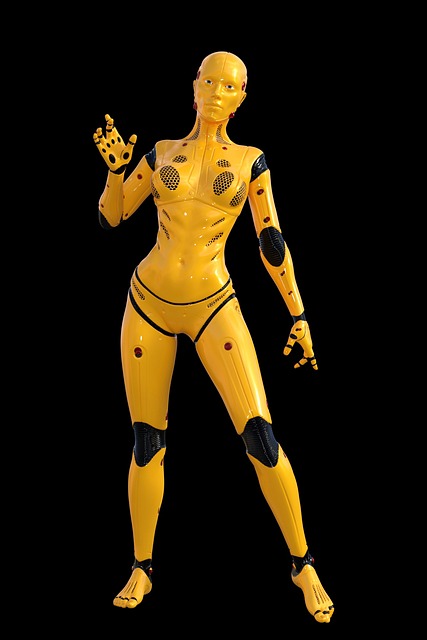Section 1: Introduction to AI Technology
Artificial Intelligence (AI) has been a buzzword in the tech industry for decades, but in recent years, it has become a game-changing force in various industries. From healthcare to finance, AI technology is revolutionizing the way businesses operate and transforming the world as we know it. With its ability to analyze vast amounts of data, make complex decisions, and learn from experience, AI is unleashing its power in ways we never thought possible. In this article, we will explore the impact of AI technology on industries and how it is shaping the future.
Section 2: How AI is Revolutionizing Industries
1. Healthcare: One of the most significant impacts of AI technology is in the healthcare industry. With the help of AI-powered tools, medical professionals can now diagnose diseases more accurately and provide personalized treatment plans for patients. AI algorithms can analyze medical data, such as patient records, lab results, and imaging scans, to identify patterns and make predictions. This not only saves time but also improves the accuracy of diagnoses, leading to better patient outcomes.
2. Finance: AI is also making waves in the finance industry, where it is being used to streamline processes and make more informed decisions. AI-powered chatbots are being used to handle customer inquiries, reducing the need for human customer service agents. In addition, AI algorithms are being used to analyze market trends and make investment decisions, resulting in better returns for investors. With the help of AI, financial institutions are also able to detect and prevent fraudulent activities, making transactions more secure.
3. Manufacturing: The manufacturing industry has also seen a significant transformation with the implementation of AI technology. AI-powered robots are being used to automate tasks in factories, increasing efficiency and reducing the risk of human error. These robots can also work 24/7, leading to increased productivity and cost savings for businesses. In addition, AI is being used to analyze data from sensors and machines in real-time, allowing for predictive maintenance and reducing downtime.
Section 3: Beyond Industries: Other Applications of AI Technology
1. Education: AI technology is also making its way into the education sector, where it is being used to personalize learning for students. With the help of AI, educators can analyze student data, such as test scores and learning styles, to create personalized lesson plans. This not only improves student engagement but also leads to better academic performance. AI-powered chatbots are also being used to provide 24/7 support to students, answering their questions and providing feedback on assignments.
2. Transportation: The transportation industry is also seeing the impact of AI technology. Self-driving cars, powered by AI, are being tested and developed, with the potential to reduce accidents and improve traffic flow. In addition, AI is being used to optimize routes and schedules for public transportation, reducing travel time and improving efficiency. With the help of AI, transportation companies can also analyze data to predict demand and adjust their services accordingly.
3. Agriculture: AI technology is also being utilized in the agriculture industry, with the aim of increasing crop yields and reducing waste. AI-powered tools can analyze data from soil samples, weather patterns, and other factors to provide insights on the best planting and harvesting times. This not only leads to better crop quality but also reduces the use of resources such as water and fertilizers. In addition, AI can also be used to identify and treat plant diseases, leading to higher yields and healthier crops.
Section 4: Challenges and Future of AI Technology
While the potential of AI technology is vast, there are also challenges that need to be addressed. One of the main concerns is the ethical use of AI, as it has the potential to reinforce existing biases and discriminate against certain groups. There are also concerns about the impact of AI on jobs, with some predicting that it may lead to job loss in certain industries. However, experts believe that AI will create new job opportunities, especially in the field of AI development and maintenance.
The future of AI technology is exciting and ever-evolving. With advancements in machine learning and natural language processing, AI is becoming more human-like in its capabilities. This opens up new possibilities for its use in various industries and beyond. In addition, as more data becomes available, AI algorithms will become even more accurate and efficient, leading to further advancements.
Conclusion
In conclusion, AI technology is revolutionizing industries and transforming the world in ways we never thought possible. From healthcare to education, AI is making a significant impact, improving efficiency, and making processes more personalized. While there are challenges that need to be addressed, the future of AI technology looks promising, and its potential for growth and development is limitless. As we continue to unleash the power of AI, we can expect to see even more remarkable advancements and changes in the years to come.

